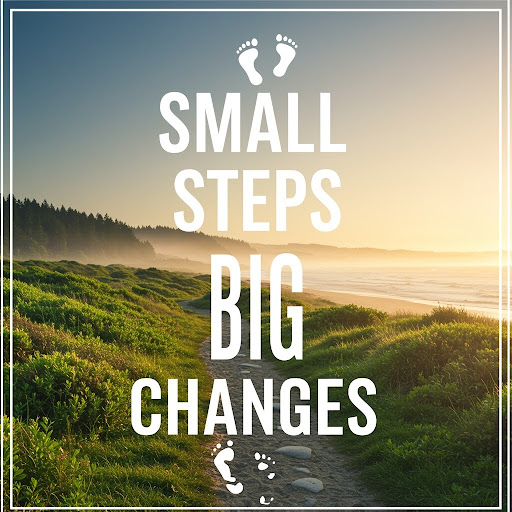How a Single Hour Can Transform Your Daily Rhythm and Your Career

It happens twice a year; we all set our clocks forward or back by one hour. It’s a tiny shift - just 60 minutes - but it has an undeniable impact. The mornings feel darker, the evenings stretch longer, and for a few days, our routines feel slightly off. But then, almost without noticing, we adjust.
This small, deliberate change in time creates a noticeable difference in our days. And that’s exactly how real, lasting transformation works - not through massive overhauls, but through small, intentional shifts that compound over time.

The Power of Small Shifts
Daylight savings time is a reminder that big change doesn’t happen all at once. It happens in increments, often so gradual that we don’t see the effects immediately. The same is true for our well-being, our productivity, and even our success. Tiny adjustments - like shifting our sleep by 15 minutes, pausing before jumping into the next task, or creating just a little more space for rest - can set off a chain reaction of positive change.
Rather than aiming for an impossible, overnight transformation, we can take a lesson from daylight savings: small changes, consistently applied, lead to meaningful results.
1. A Small Shift in Sleep = A Sharper, Clearer Mind
Moving the clock forward by one hour affects our internal rhythms, even if just slightly. But rather than fighting it, we adapt. The same principle applies to improving sleep. Instead of trying to overhaul your entire routine, start with one small shift - going to bed just 15 minutes earlier.
Fifteen minutes may not seem like much, but over a week, that’s nearly two extra hours of rest. Over a year, it’s over 100 additional hours of sleep. That’s the power of small shifts - they add up.
2. A Small Pause = A More Focused, Less Stressed Day
Daylight savings time doesn’t just shift our mornings; it changes how we experience the entire day. A similar shift can happen when we insert just a little more space into our routines.
Instead of rushing from one task to the next, pause for 30 seconds before diving in. Take a deep breath. Look away from your screen. Reset. It’s a tiny interruption, but over time, these micro-pauses keep stress from accumulating and improve focus.
Just like that extra hour of daylight gradually transforms our perception of time, these small resets transform how we navigate our day.
3. A Small Boundary = More Energy and Less Burnout
We tend to think boundaries require grand gestures - turning off email entirely, saying no to everything, restructuring our workload. But often, it’s the small boundaries that make the biggest difference.
Something as simple as delaying responses to non-urgent messages after hours signals to others - and to yourself - that your time matters. Setting up email filters reduces distractions, allowing you to reclaim focus. One small shift, applied consistently, reclaims hours of mental energy over time.
The Daylight Savings Mindset: Tiny Changes, Lasting Impact
If moving the clock forward by one hour can change how we experience time for months, imagine what shifting one small habit can do for your well-being, focus, and overall success.
Daylight savings teaches us that transformation doesn’t happen overnight. But small, intentional changes, repeated over time, create a new reality.
So this season, instead of feeling stuck in the same old habits, ask yourself:
What’s one small shift I can make today?
Where can I adjust just one degree to create a ripple effect in my life?
A small step forward today can lead to a completely different future. It’s just a matter of time.
Recommended Resources
[Book] Slow Productivity by Cal Newport
[Book] Tiny Habits: The Small Changes That Change Everything | BJ Fogg
[Article] A Small Guide to Big Changes | by Jeff Munn
[Article] How to Master the Art of Continuous Improvement | by James Clear
[Video] Forget big change, start with a tiny habit | TEd Talk by BJ Fogg
Feel free to download, share, and use these quotes to inspire yourself and others!



